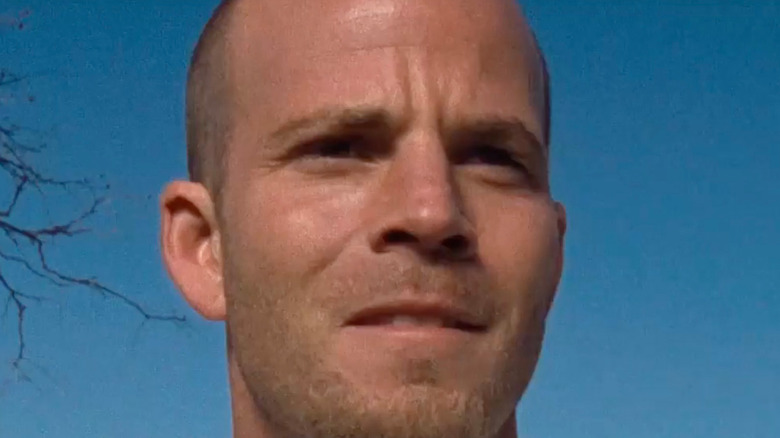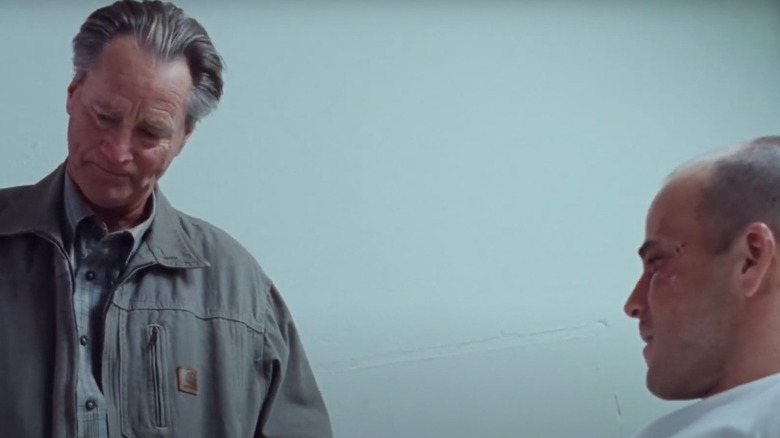The Ending Of Felon Explained
Many movies and TV shows explore the effects that incarceration has on an individual — see HBO's recent drama "The Night Of" for one example — but few are as harrowing as "Felon." This is a 2008 prison drama that stars Stephen Dorff as Wade Porter, a man who's technically not wrongfully convicted, but is about as close to that as possible.
Wade is a family man who's convicted of manslaughter after accidentally killing a burglar on his front lawn. He soon finds himself trapped in a California prison system where brutality is common, and prisoners have no real choice but to participate. After Wade is wrongfully implicated in the stabbing of another inmate, he's transferred to a maximum-security wing run by the sadistic Lt. Jackson (Harold Perrineau), who forces the prisoners to fight and runs a betting ring off it. Wade just wants to serve out his sentences but finds himself drawn deeper and deeper into the prison's violence while his marriage falls apart. But Wade finds an unexpected ally in his cellmate John Smith (Val Kilmer), a convicted murderer who helps him realize what's most important.
In the end, Smith gives up his life to help Wade expose Jackson's brutality, and it leads to real change in the system. But the big question posed by "Felon" is whether Wade can move on from prison without it changing him. And in the end, we get some answers.
In Felon, prison is a dehumanizing experience, but also a clarifying one
"Felon" is a classic "man vs. society" conflict, and like many stories of this type, the hero who challenges the corrupt system isn't just fighting the system; they're also trying not to let the experience change who they are.
Here, our protagonist Wade doesn't start off as a violent person, but several circumstances force him to become more and more violent — the burglary, his incarceration, and then his attempt to fight the system. Another movie might suggest that someone like Wade could still go back to "normal" after all this brutality, but "Felon" has a different message. Helpfully, all this is spelled out in the form of a posthumous letter John wrote to Wade.
In the letter, rather than deny the reality of Wade's experiences, John advises Wade to embrace them. But this doesn't mean that Wade has to accept becoming a brutal killing machine incapable of love. In John's view, violence is a twisted, if necessary, expression of love. Wade had to resort to violence to protect his friends and family, but to John, this is just a reflection of how much love Wade has. That may or may not be true, but it's certainly a way for Wade to move forward with his life. And in the movie's final shot, that's what he does, reuniting with his wife and son.
But "Felon" isn't just Wade's story. In the final message before the credits, the movie points out that 23 million people were incarcerated in America as of 2008. Wade's experience is the same as that of millions of people. While the movie's message is hopeful, it also acknowledges that many don't survive prison, or if they do, they may not be as lucky as Wade.

